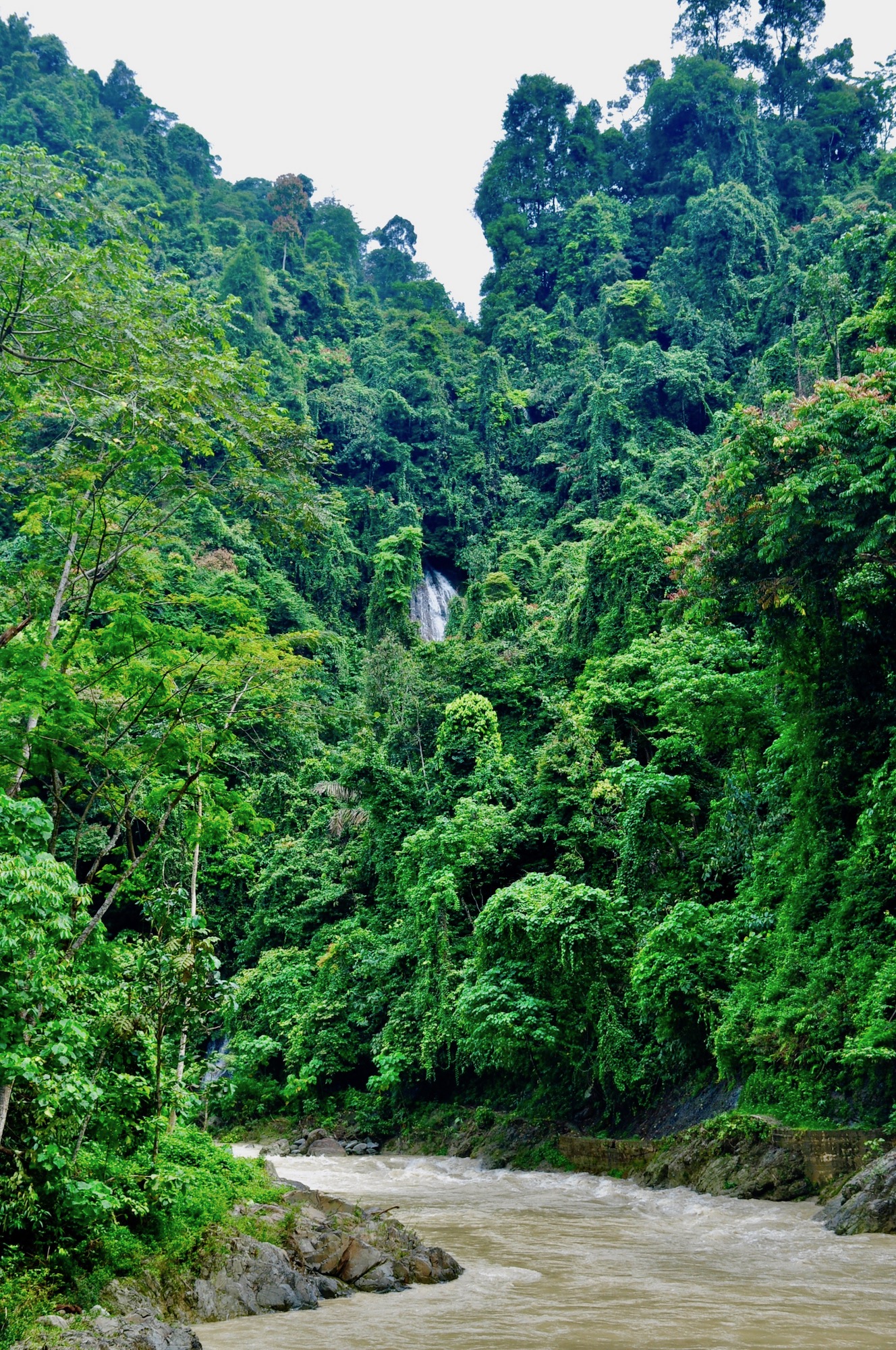
As we journeyed through the Bukit Lawang rain forest on our first trek all of my thoughts were on orangutans. Would we really see them up close, and if we didn’t could I be mature enough to be grateful for the experience and the hike anyway? Then our guides started to show us the amazing things this local culture does. As we entered the rainforest, after walking across a rickety bridge, over some serious rapid waters, they showed us a wall of vertical gardening, all done in old plastic soda bottles. For them growing whatever they can on their own is quite important as earning money here is not easy. The cost of land, and the ravaging of their property for palm oil plantations each make life more difficult than it was 5 to 10 years ago.
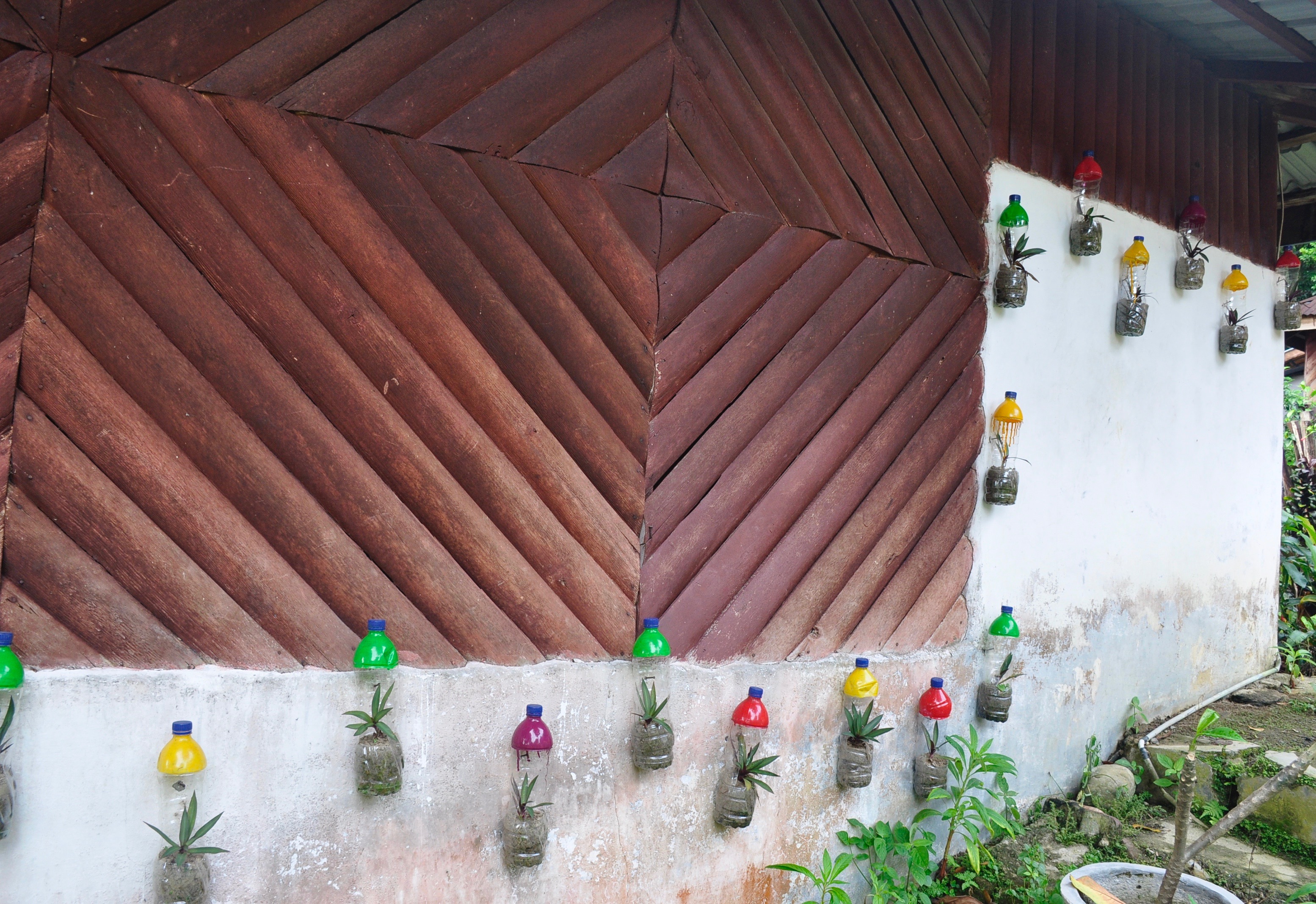
The deeper we walked into the forest the more their dedication to sustainable living and building became evident. They have a deep respect for their environment and leaving as small of a footprint as possible.
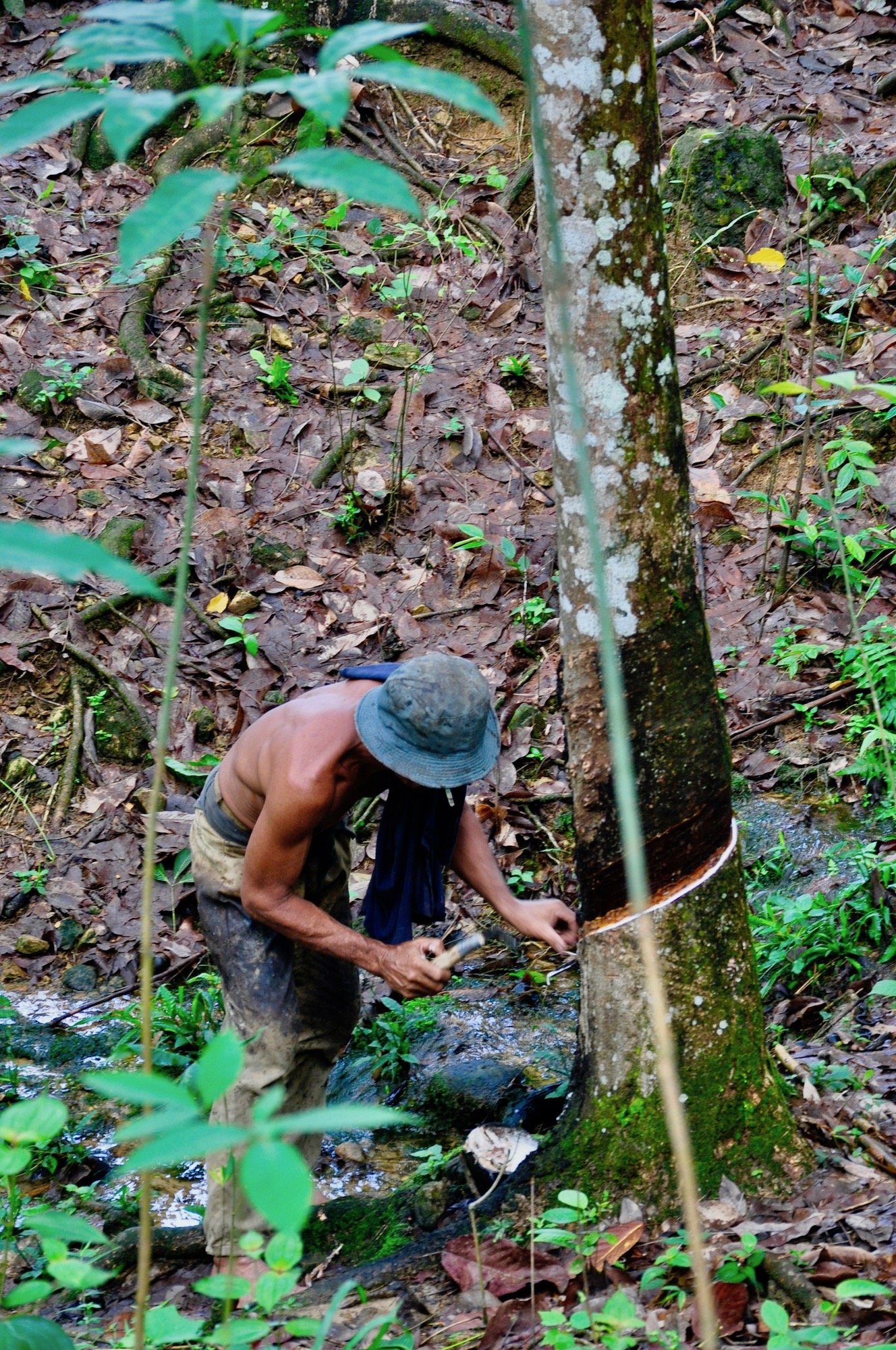
This knowledge led to my surprise at seeing a man cutting small channels into a field of trees. I couldn’t understand why they would damage the trees, which help make up this beautiful forest. I stopped to take pictures of the small valley of trees all with what looked to be white tracks running along the bases. The man who was cutting the channels used a small curved knife to gently cut into the trees. Then at the bottom he placed small bowls made from coconut shells. As we watched I could see a type of white milky liquid slowly running through the channels and into the bowls. This milky liquid, which moved slower than the drip of maple out of a maple tree, was rubber. Each tree is a rubber tree, and the locals come and cut small channels, shallow enough to not hurt the tree but deep enough to allow the liquid rubber to be forced through the channel and into the bowl.
Each morning they come to their trees to pull the milky substance out of the bowls and make sure there is still liquid flowing from the tree. They do this seven days a week 365 days a year. It is hard work with unfortunately very little financial return. The amount they can capture will most often not buy enough rice for a family for one week. Yet, in this region where they have lost a lot to the big palm oil manufacturers it is one of only a few options they have for making a living.
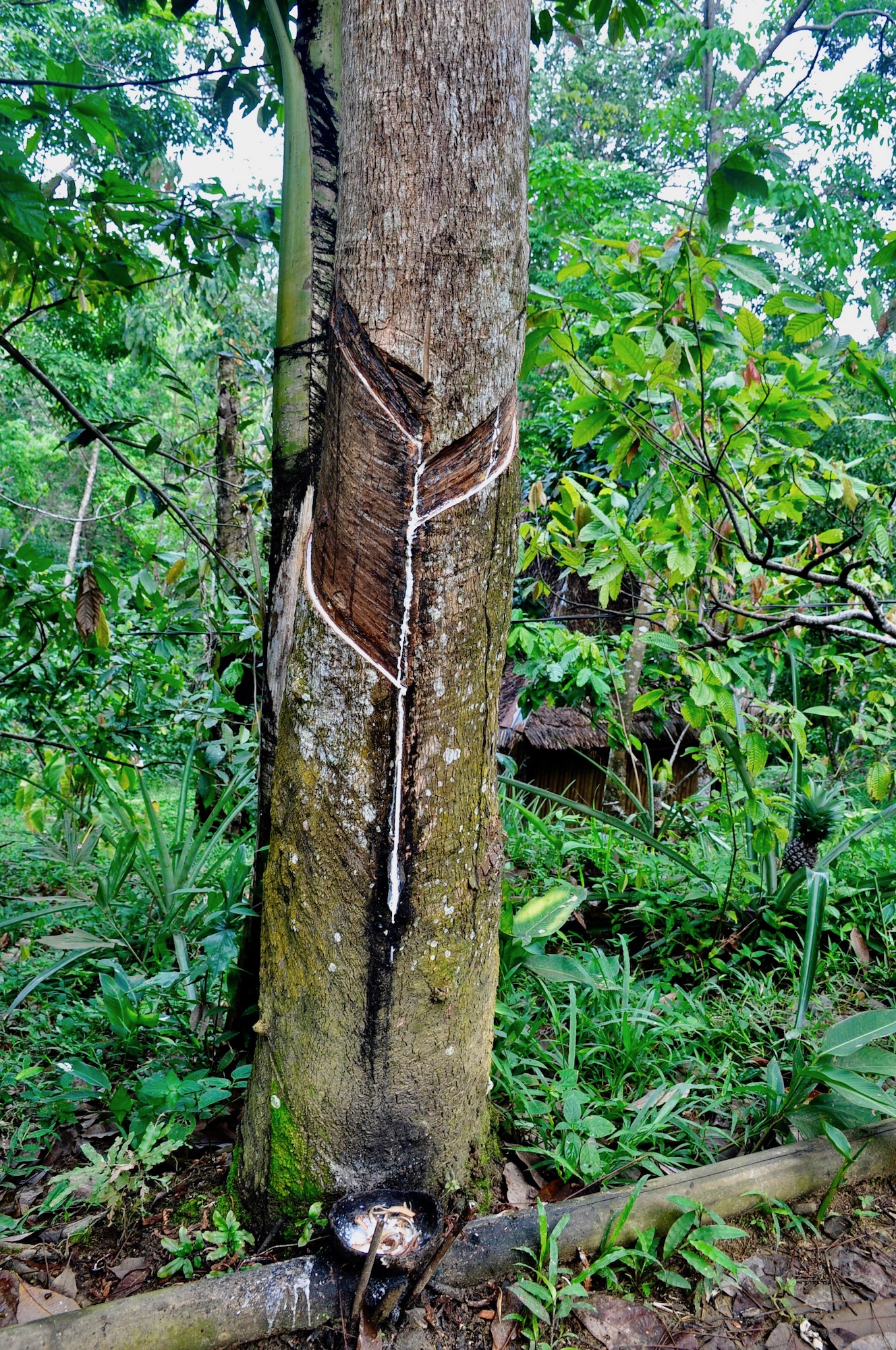
While I saw the trees and the knives, the bowls and the process as beautiful, they see it as a necessity in order to feed their families.
Each Friday they go to the local market with huge blocks of rubber balls mashed together. They put them on the back of their scooters as they ride to the market hoping they have enough to buy food for the week.
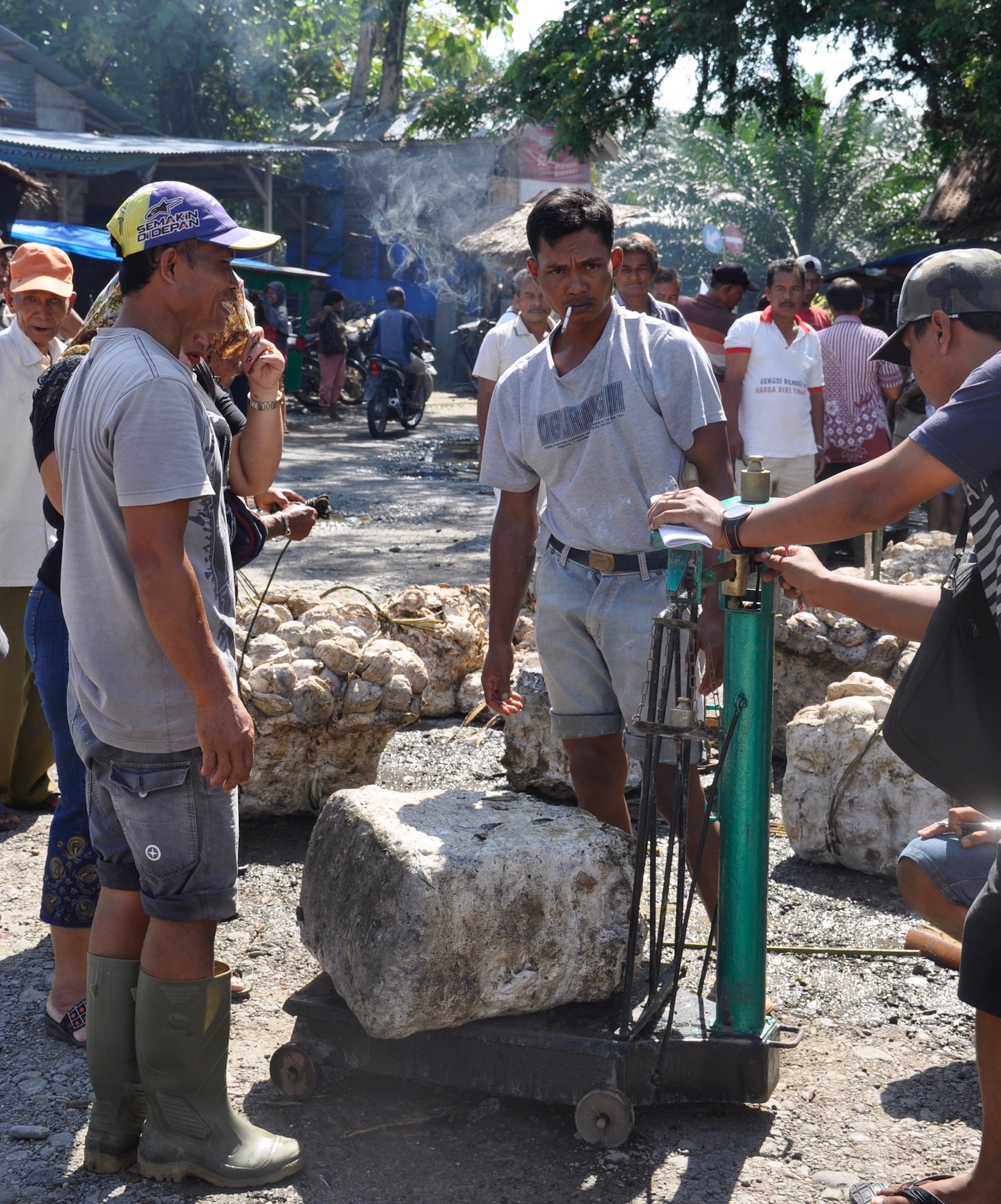
The experience at the market was shocking to me. The smell of all of this rubber is absolutely disgusting. After I stopped gagging I was able to observe how the process works. The men and women gather, chain-smoking cigarettes, maybe out of self-defense to overpower the atrocious smell, and wait their turn at the large scale. Two men man the scales, tell the locals how much their rubber weighs and what they will be paid for it. Some local women felt cheated and a little argument ensued which in the end, was won by the man with the scale. Once weighed the rubber is hooked to a large piece of bamboo and carried away to make room for the next block. This process goes on all day, leaving some disappointed and some relieved, perhaps even happy.
It isn’t the hardest way to make money, but it definitely is an extremely low paying fete. For a weeks worth of work they make less than twenty dollars on average. While the cost of living in Bukhit Lawang is extremely low 20.00 per week is not enough to live on yet the people maintain an overall happiness and joy for life. I am not sure what the future holds for the locals as more and more of their land is gobbled up by palm oil producers but I left here knowing it was worth my time to read labels and send a message to these producers by not buying products with palm oil, lack of demand may help to slow down the raping of this environment and allow the locals to adapt and find other ways to make money.
(Our amazing guides were from Hotel Orangutan. I can’t say enough good things about their knowledge, kindness, and respect for the beautiful environment around them.)


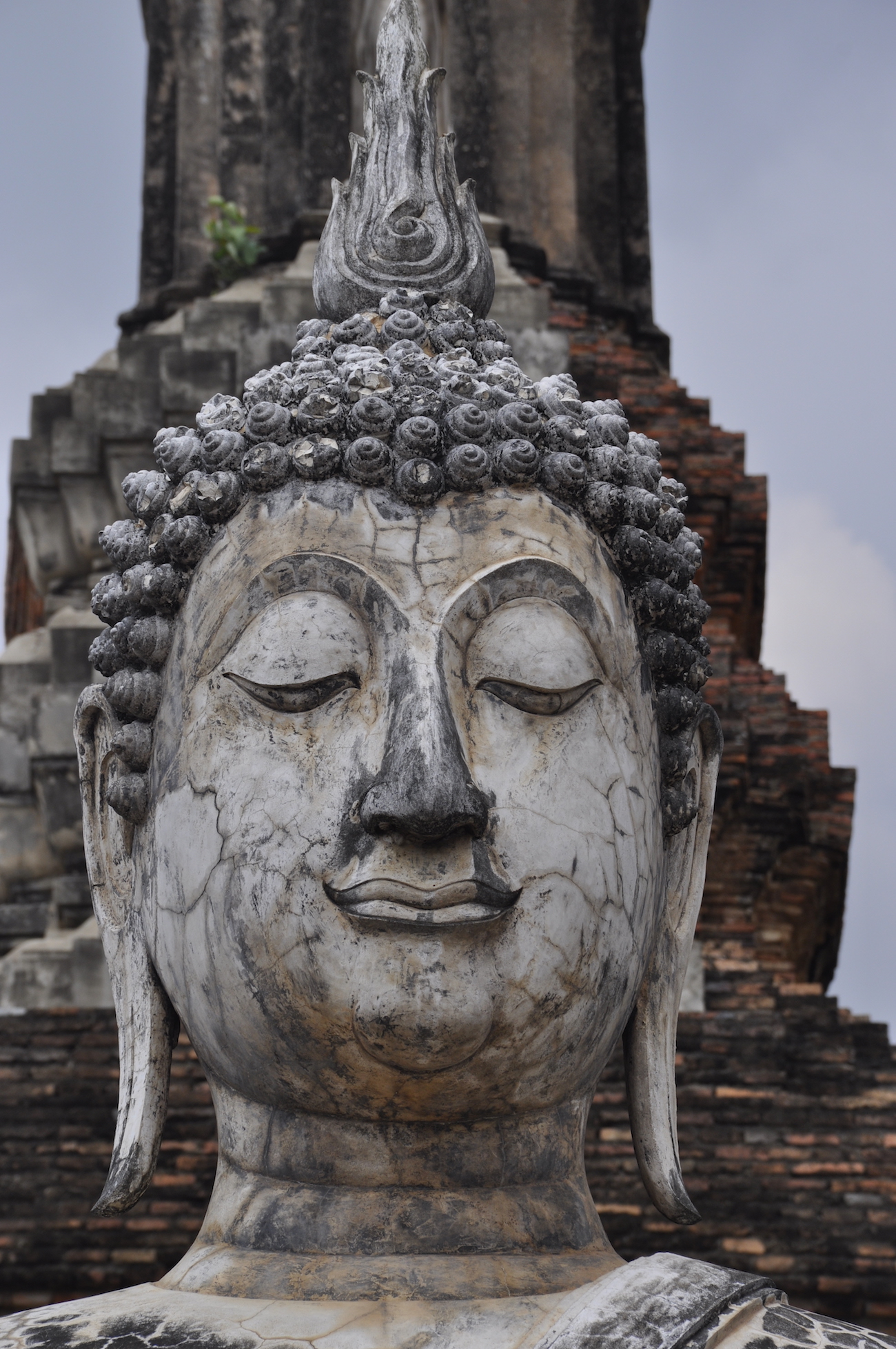
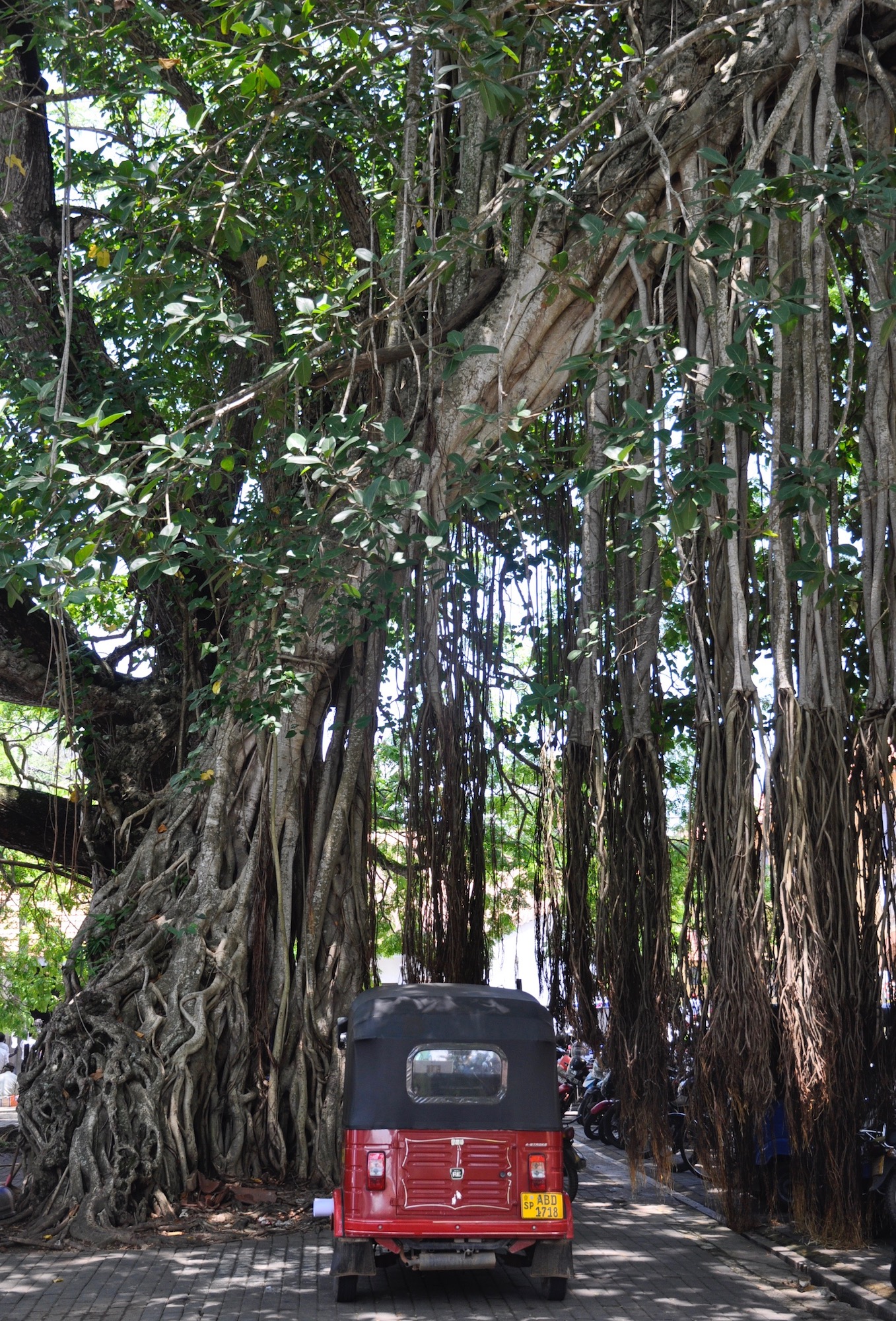

So did you see orangutans??
Yes that blog post will be up soon! It was amazing!
actually normal people also farm palm oil. a lot of rubber smallholders have replaced their trees with palm oil. The price of rubber is directly correlated to the oil price (synthetic rubber), which is currently low.
The process of rubber farming is very inefficient in that the land owners just work for a couple of hours a day (the rubber trees can only be worked in the early morning) after which they might not work the rest of the day.
They should collect the rubber and make sheets https://www.youtube.com/watch?v=23-NNT5g5Oc This was done under Dutch rule, however things have got less efficient in the last 100 years! Rubber sheets have a higher price.
The rubber farming process is very unproductive (no taxes are collected, and not all of the land is worked for various reasons) in comparison to industrial plantations and unlike in Thailand rubber co-ops don’t support the farmers to improve productivity and incomes.